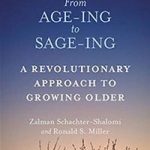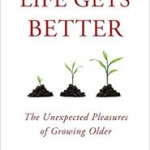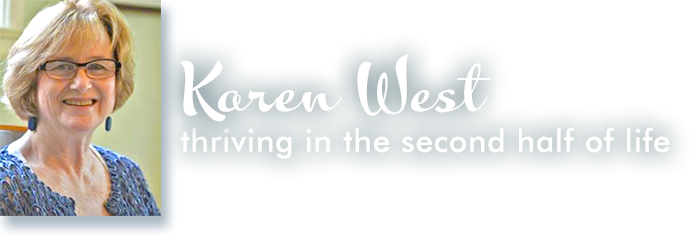I thought I was going to die when I was 52, because both my mother and my grandmother did. Now at 72, I feel so lucky that I didn’t die, because I’m thrilled that I have the opportunity to be old. (If you’re surprised to hear me say that, I would love to have you read my early blog entries.) I’m pretty sure that I wouldn’t be nearly as happy being old if I hadn’t discovered “conscious aging” as I was retiring, and then a few years later, “sage-ing.”
And because I have always been an educator, I was even more thrilled that I could share what I was learning as I created and taught classes and workshops. But the most exciting part was seeing participant after participant embracing being old, just like I had. And finally, I wanted to share this experience with even more people, so in January of 2019, I started my blog.
Now I feel the need to attempt to inspire you to do something else that I feel is really empowering in the “second half of life.” Writing about your life.
In my blog entry on January 17, 2020 called “Life Review in 7‑year Cycles” and repeated in my next entry on February 7, 2020 called “Starting Your Life Review,” I shared with you how Rabbi Zalman Schachter-Shalomi, who gave birth to the conscious aging movement, suggested we begin writing about our lives.
 In his book From Age-ing to Sage-ing: A Profound New Vision of Growing Older—1995), Rabbi Zalman tells us that the “memory becomes sharper and clearer when it’s associated with partitioned time.” (217), which my students have found to be true. Doing this “exercise” will help you remember your life much better than if you just think about it. I have also written a lot about how important it is to remember—and to tell—our stories.
In his book From Age-ing to Sage-ing: A Profound New Vision of Growing Older—1995), Rabbi Zalman tells us that the “memory becomes sharper and clearer when it’s associated with partitioned time.” (217), which my students have found to be true. Doing this “exercise” will help you remember your life much better than if you just think about it. I have also written a lot about how important it is to remember—and to tell—our stories.
Now I would like to share some ways that writing about your life beyond doing the Life Review in 7‑year Cycles can be magical and life-changing.
First I’d like to share two quotes by by E. M. Forster and W.H. Auden “How do I know what I think until I see what I say,” and “Writers write what they know,/but they don’t know what they know/until they write it.” Have you had this experience? I often just start by freewriting (writing whatever comes into my head) and I keep writing until that writing takes me where I expected to go or until it takes me somewhere unexpected and I go off in that direction or until I start over from that new direction, a direction that is often very different from where I started. I was one of those students who, when required to make an outline before I wrote the paper, wrote the paper first and then wrote the outline only to satisfy the teacher. For example, you could start writing in your journal by writing “When I think about being old…” and see where you go.
What is also exciting is that when I’ve been writing, thoughts come into my head at random times that I wouldn’t have had, if I hadn’t been writing recently. Or I read something that applies to what I’m writing, and I react differently to it than I would if I weren’t writing what I’m writing. It’s like because I’ve been writing, my subconscious is still thinking about what I’m writing when I’m not actually writing. Natalie Goldberg, who wrote the classic book “Writing Down the Bones,” calls this process “composting.”
I would also like to share with you what two other writers have said about how magical writing is. In the book The How of Happiness: A New Approach to Getting the Life You Want, Sonja Lyubomirsky writes that at first researchers thought that journal writing about trauma was effective, because it provided “emotional catharsis,” but then they decided it was more about “the nature of writing.” They said that “Writing about the experience in a journal forces you to organize and integrate those thoughts and images into a coherent narrative…When an experience has structure and meaning, it seems much more manageable and controllable than when it’s represented by a chaotic jumble of thoughts and images.” (165)
 And finally, in Life Gets Better: The Unexpected Pleasures of Growing Older, Wendy Lustbader says she journals because she wants to ask herself what in her life is worth remembering and record it, so it isn’t “swept away in the rush of days going by.” She tells us that there “limits to what can be stored and retrieved cerebrally.”
And finally, in Life Gets Better: The Unexpected Pleasures of Growing Older, Wendy Lustbader says she journals because she wants to ask herself what in her life is worth remembering and record it, so it isn’t “swept away in the rush of days going by.” She tells us that there “limits to what can be stored and retrieved cerebrally.”
Lustbader also says, “It feels as if such entries add an extra layer to living. I accept my own impermanence, but I cannot stand to lose a week or a month. The capacity to parse, to deliberately step back and consider our words and actions, is a skill to be cultivated.’ (84–85)
I would love to have you weigh in on the value of writing by sharing a comment…


6 thoughts on “How Do I Know What I Think?”
I sometimes journal when I’m having strong reactions to something and don’t know how to handle it. Writing what I’m thinking and feeling helps me dump the emotions, focus, and get to the heart of the matter. I usually find some clarity and a different perspective on the issue.
Do you ever go back and read what you’ve written?
In the writing classes I teach for people in their older years, I love witnessing the “aha” moments when people share their personal stories, which are then received by others as a precious gift. The writing is already a gift for the writer, when the discoveries arise off the page and bring a sense of completion or surprise or a myriad of other responses. Clarifying one’s story in writing this way leads to a kind of liberation. Like the truth just got let out of the bag.
And then, as I said, there is the joy of hearing the responses from others who read or hear the story. The story now has worth beyond yourself. It has a public life. Hearing that others “get it” and appreciate your story can be immensely gratifying. It is a kind of assurance that you have indeed lived a memorable life and that your story matters.
Thank you so much for sharing your experience with writing. I love that you say it’s a “gift” for both the writer and the reader.
i journal in my mind. But that is not very effective or lasting because I have the memory of a grapefruit. I need to start this practice.
Yes, when you write something down, it will be different words and thoughts than if you just think about it. Thank you for your comment, Mike.